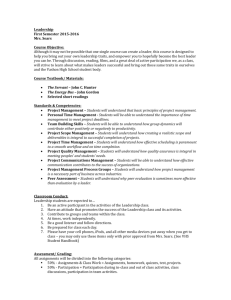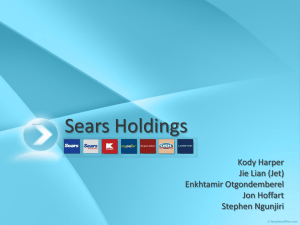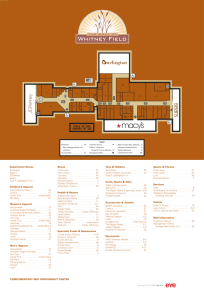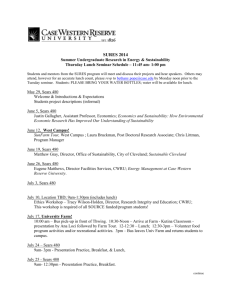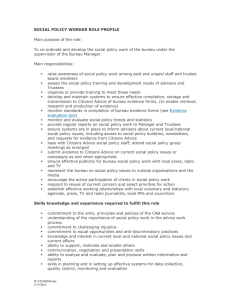Heading 1 - Stikeman Elliott
advertisement
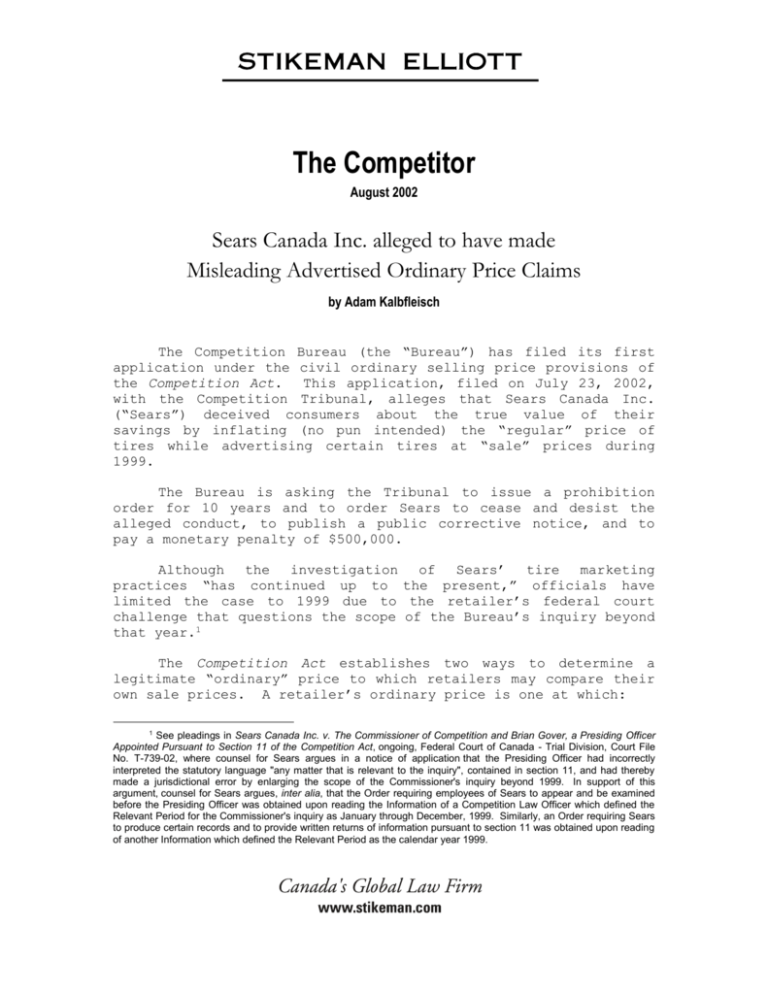
The Competitor August 2002 Sears Canada Inc. alleged to have made Misleading Advertised Ordinary Price Claims by Adam Kalbfleisch The Competition Bureau (the “Bureau”) has filed its first application under the civil ordinary selling price provisions of the Competition Act. This application, filed on July 23, 2002, with the Competition Tribunal, alleges that Sears Canada Inc. (“Sears”) deceived consumers about the true value of their savings by inflating (no pun intended) the “regular” price of tires while advertising certain tires at “sale” prices during 1999. The Bureau is asking the Tribunal to issue a prohibition order for 10 years and to order Sears to cease and desist the alleged conduct, to publish a public corrective notice, and to pay a monetary penalty of $500,000. Although the investigation of Sears’ tire marketing practices “has continued up to the present,” officials have limited the case to 1999 due to the retailer’s federal court challenge that questions the scope of the Bureau’s inquiry beyond that year.1 The Competition Act establishes two ways to determine a legitimate “ordinary” price to which retailers may compare their own sale prices. A retailer’s ordinary price is one at which: 1 See pleadings in Sears Canada Inc. v. The Commissioner of Competition and Brian Gover, a Presiding Officer Appointed Pursuant to Section 11 of the Competition Act, ongoing, Federal Court of Canada - Trial Division, Court File No. T-739-02, where counsel for Sears argues in a notice of application that the Presiding Officer had incorrectly interpreted the statutory language "any matter that is relevant to the inquiry", contained in section 11, and had thereby made a jurisdictional error by enlarging the scope of the Commissioner's inquiry beyond 1999. In support of this argument, counsel for Sears argues, inter alia, that the Order requiring employees of Sears to appear and be examined before the Presiding Officer was obtained upon reading the Information of a Competition Law Officer which defined the Relevant Period for the Commissioner's inquiry as January through December, 1999. Similarly, an Order requiring Sears to produce certain records and to provide written returns of information pursuant to section 11 was obtained upon reading of another Information which defined the Relevant Period as the calendar year 1999. STIKEMAN ELLIOTT 2 a “substantial” volume of the product has been sold (the volume test); or the product has been sold for a “substantial” period of time (the time test). The Bureau has defined “substantial” to mean: at least 50% of the volume sold; or 50% of the time offered.2 Sears allegedly sold less than 4% of the five types of tires studied at the advertised “regular” price in 1999. The tires were on sale between 40% and 80% of the time. The Bureau alleges that Sears never had a genuine expectation of selling the tires at the “regular” price, creating an impression that “the tires, when promoted on sale, represented a greater value than was actually the case,” adding that the tire example violates Sears’ own internal pricing policies. The federal government amended the Competition Act in 1999 to create a civil “ordinary selling price provision” after determining that some cases once regarded as criminal in nature would be more appropriately handled under a civil regime. The Sears case highlights the fact that the Bureau has become much more vigilant in its enforcement activities related to ordinary price claims. On February 7, 2002 the Retail Council of Canada (RCC), a non-profit association of retailers with 8,500 members, issued a member notice stating that officials from the Bureau had recently advised the RCC that they were investigating complaints concerning retailers’ compliance with the ordinary price claims provisions of the Competition Act. The member notice can be found at: 2 The Bureau publishes on its website a thorough explanation of how it applies this part of the Competition Act and a series of hypothetical examples. The address is: http://strategis.ic.gc.ca/SSG/ct01182e.html STIKEMAN ELLIOTT 3 http://www.retailcouncil.org/govrelations/federal/notice020207.as p It is also worth noting that the Bureau does not limit its review of ordinary price claims to comparisons between a particular retailer’s regular and sale prices. The Bureau will also look at inter-retailer comparisons of the “Compare At” ilk, which invite the consumer to compare one retailer’s price to a competitor’s price. This type of inter-retailer price comparison raises several issues, including whether the comparison was valid at the time the original comparison was made. If you have questions concerning the ordinary pricing or other misleading advertising provisions of the Competition Act, call the author or another member of Stikeman Elliott’s Competition Group.
